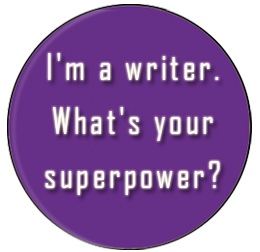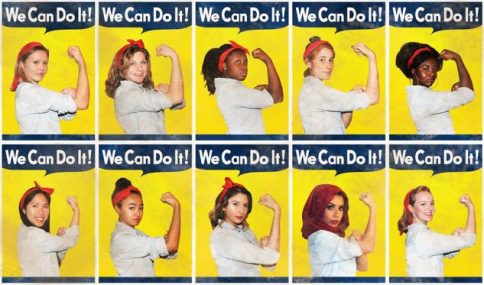Reading is an Act of Empathy
There’s even science that backs this up: People who read are more readily empathetic about people who don’t live the way they do. As Elizabeth Anderson told me in a recent radio interview, reading allows us to know people.CONTENTS
Because of reading I have strong empathy for little girls who grow up on prairies and all the challenges they fictionally face. However, I didn’t get much empathy for the people who lived on that prairie before the family arrived. For the most part, their authentic story wasn’t told, not by anyone. As a child, I had no way to know that these untold stories even existed.
Reading may make us more readily empathetic, but we can’t empathize with what we don’t read about.
A Couple Million Words and Five Decades Later
Flash forward to me listening to a keynote address by Courtney Milan* on her fascinating story of “having it all” in publishing terms and finding that “all” defined by other people wasn’t what she thought it would be. That marketing romances that don’t feature the usual mainstream characters is challenging, but the other choice – not to do it – isn’t something she even considers. In a separate presentation she spoke about the power of choosing your own narrative even if it’s not in parallel with the mainstream – words that resonated with this lesbian writer, of course.
Milan went on to talk about all the people who don’t show up in mainstream story pages, and it’s a long, long list. Of course LGBTQ people are on that list. It’s not a competition, but my own observation is that people with atypical brains and bodies are at the top of that list.
We Already Don’t Write “What We Know”
Writers are encouraged to write what they know, to tell stories about the world as they experience it. If we were limiting ourselves to just our narrow sphere of life, then lesbian fiction wouldn’t be overwhelmingly peopled by white, thin, fashionably beautiful, able characters. I have certainly created plenty of story people that fit that description. I’ve created them confidently and easily, yet most of them are not that much like me.

It was Courtney Milan who slid the proverbial needle into my brain. While I tried to give my story people authentic lesbian lives based on what I observed and researched, did they lack for other just as intriguing, story-rich experiences because I hadn’t observed them – and hadn’t done the research?
Did my own fear of writing outside my own experience make me miss great story opportunities and the chance to spread empathy in the reading world? (Spoiler alert: YES)
Baby Steps or Giant Leaps, It’s All Scary
As Sam muses to Frodo as they leave the Shire, every step into new territory, big or small, has significance and brings new experience. It is the first to go that far. I’ve written characters living an immigrant diaspora, who are mixed race, economically strapped, struggling with body image, surviving abuse, living with addiction, and coping with misogyny and workplace sexism. All of those things I either lived with myself or observed closely in the world around me.
I love telling those stories in the romance genre because in spite of the challenges, there is a happy ending and the women always end up the heroes of their own lives.
My Lady Lipstick (due out February 15 from Bella Books) is another step into my own new territory. One character is neural atypical, something I know about only by research and study. She’s also a lesbian, and she’s been the victim of the worst kind of Internet bullying. All of these things shape who she is, but none are the focus of the story. They are facts, and the romance is told with those facts creating opportunities and limitations.
I did my research into anxiety disorder as thoroughly as possible, and did my best to be an invisible guest in various online discussion groups and blogospheres where people with neurons that act differently talk about navigating life and other people’s reaction to them. Did I get it right with Paris Ellison? Time will tell.
(For that matter, did I get it right with Diana Beckinsale, my first ever British character with her own point-of-view? Well enough for Americans, perhaps, but I really hope I don’t have my British friends heaving the book into the nearest bin.)
This I know – readers will tell me what they feel I got right or not so right. And, because reading is magic, it’s not just the act of reading that arouses our empathy. Talking about what we read arouses our empathy for the story people as well.

Rosie the Riveter, photo shoot by Ilana Spiegel
Representation is Our Job, Isn’t It?
One of the hallmarks of a good book, for me, is that it compels my empathy for the characters. For some period of time, I look at their world through their eyes without the judgment of my own experiences.
As a writer, I have always understood that my job is channeling my world to the page so that other people can care about the characters and their hopes, dreams, and choices in life the way I do. My empathy creates theirs. As Chuck Wendig wrote, “We have a lot of work to do, and choosing not to do it is no longer acceptable.”

Given how many years I’ve been writing, it’s hard to admit that there are still scary bits. Fear kills creativity, so I made a list to remind myself of how and why widening representation in my stories is worth the commitment and overcoming the fear of causing offense through ignorance.
- Diligent and diverse research means I am a sponge, not a straw. Soak, baby, soak.
- My superpower is writing which means my empathy can change the world. Biff! Ka-Pow! With great power comes great responsibility. *pew pew pew*
- A good guest in other people’s lives shuts up and listens. Reminder: It’s not their job to teach me. I am grateful when other people gift me with their experience.
- Don’t be afraid to get it wrong. Lather, rinse, repeat! Like everything else, it takes practice. Practice means imperfect — at first.
And thank you Courtney Milan, from the bottom of my timid little heart.
To those of you already thinking and writing about diversity within diversity, and giving representation to the people who don’t show up in mainstream stories, you are lighting the way, you have inspired me, and I thank you too!
* Courtney Milan writes books “about carriages, corsets, and smartwatches.” Her Twitter feed is worth following, and her books worth savoring. Read all about Courtney here.

